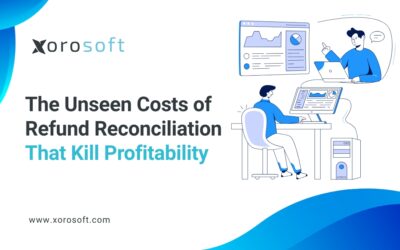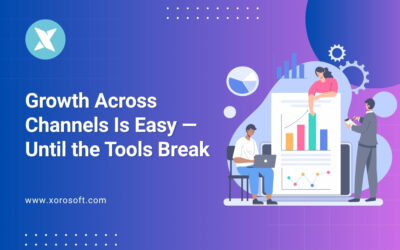
Introduction to ERP Systems and Their Importance in Businesses
ERP systems are comprehensive software solutions designed to integrate and streamline various business processes, from accounting and finance to inventory management and supply chain operations. These powerful platforms have become indispensable for organizations across industries, enabling them to make data-driven decisions, improve operational efficiency, and enhance overall competitiveness.
At the heart of an ERP system lies a centralized database that consolidates and manages a vast array of business-critical information. This unified approach allows for seamless communication and collaboration between different departments, ensuring that every facet of the organization is operating in harmony. By leveraging the power of ERP systems, businesses can achieve greater visibility, enhanced decision-making, and optimized resource allocation.
Understanding the Benefits of AI and Machine Learning in ERP Systems
The integration of AI and ML into ERP systems has ushered in a new era of intelligent automation and predictive analytics. These transformative technologies have the ability to unlock a wealth of untapped potential, revolutionizing the way businesses approach their day-to-day operations.
- Intelligent Automation: AI-powered ERP systems can automate repetitive tasks, such as invoicing, inventory management, and financial reporting, freeing up valuable time and resources for employees to focus on more strategic initiatives.
- Predictive Analytics: ML algorithms can analyze historical data and identify patterns, enabling ERP systems to make accurate predictions about future trends, demand fluctuations, and potential risks, empowering businesses to make more informed decisions.
- Enhanced Decision-Making: By leveraging the insights generated by AI and ML, ERP systems can provide real-time, data-driven recommendations to users, helping them make more informed and strategic decisions that drive business growth.
- Improved Efficiency: The integration of AI and ML can streamline various business processes, reducing errors, minimizing manual intervention, and improving overall operational efficiency within the ERP ecosystem.
- Personalized User Experience: AI-powered ERP systems can adapt to the unique needs and preferences of individual users, offering personalized interfaces, tailored workflows, and intelligent assistants to enhance the user experience.
The Evolution of ERP Systems and the Integration of AI and Machine Learning
The evolution of ERP systems has been a remarkable journey, marked by a steady progression towards greater integration and intelligence. In the early days, ERP systems were primarily focused on automating and streamlining core business functions, such as accounting, inventory management, and supply chain operations.
However, as the digital landscape has continued to evolve, ERP systems have undergone a significant transformation, with the integration of AI and ML becoming a crucial driving force. These cutting-edge technologies have enabled ERP systems to move beyond their traditional role as mere data repositories, transforming them into intelligent decision-support platforms that can anticipate and adapt to the ever-changing needs of modern businesses.
Exploring the Features of Xorosoft ERP and Its AI Capabilities
Xorosoft ERP is a leading enterprise resource planning solution that has embraced the power of AI and ML to provide businesses with a comprehensive and intelligent platform. Xorosoft ERP’s AI-driven features include:
- Intelligent Forecasting: Xorosoft’s AI-powered forecasting module can analyze historical data, market trends, and various other factors to generate accurate predictions about future demand, inventory requirements, and resource allocation.
- Automated Workflow Optimization: The AI-driven workflow optimization feature in Xorosoft ERP can identify and eliminate bottlenecks, streamline processes, and recommend improvements to enhance overall operational efficiency.
- Intelligent Decision Support: Xorosoft’s AI-powered decision support system provides users with real-time, data-driven insights and recommendations, empowering them to make informed and strategic decisions.
- Personalized User Experience: Xorosoft ERP’s AI-enabled personalization capabilities adapt to individual user preferences, providing customized interfaces, tailored workflows, and intelligent assistants to enhance the user experience.
- Predictive Maintenance: Xorosoft’s AI-driven predictive maintenance module can analyze equipment and machinery data to predict potential breakdowns or failures, enabling proactive maintenance and reducing downtime.
By seamlessly integrating these AI-powered features, Xorosoft ERP empowers businesses to unlock new levels of efficiency, agility, and intelligence within their enterprise resource planning ecosystem.
How AI and Machine Learning Enhance Inventory Management in ERP Systems
Inventory management is a critical component of any ERP system, and the integration of AI and ML has revolutionized this crucial function. Xorosoft ERP’s AI-powered inventory management module can:
- Demand Forecasting: Utilize historical sales data, market trends, and external factors to accurately predict future demand, enabling businesses to optimize inventory levels and minimize the risk of stockouts or overstocking.
- Automated Replenishment: Leverage AI algorithms to automatically generate and optimize replenishment orders, ensuring that the right products are available at the right time, reducing manual intervention and enhancing supply chain efficiency.
- Intelligent Inventory Optimization: Analyze inventory data, storage costs, and customer demand patterns to recommend optimal inventory levels, storage locations, and distribution strategies, maximizing resource utilization and minimizing carrying costs.
- Real-Time Visibility: Provide users with real-time insights into inventory levels, stock movements, and product lifecycles, empowering them to make data-driven decisions and respond to market changes more effectively.
- Predictive Maintenance: Utilize AI-powered predictive maintenance to monitor the condition of warehouse equipment and machinery, enabling proactive maintenance and minimizing the risk of disruptions to the inventory management process.
By harnessing the power of AI and ML, Xorosoft ERP’s inventory management module helps businesses streamline their operations, reduce costs, and enhance customer satisfaction through improved product availability and on-time delivery.
The Role of AI and Machine Learning in Efficient Accounting Processes within ERP Systems
The accounting function is a critical component of any ERP system, and the integration of AI and ML has revolutionized this essential aspect of business operations. Xorosoft ERP’s AI-powered accounting module can:
- Automated Data Entry: Utilize optical character recognition (OCR) and natural language processing (NLP) technologies to automatically extract and populate financial data from invoices, receipts, and other documents, reducing manual data entry and minimizing the risk of errors.
- Intelligent Expense Categorization: Leverage AI algorithms to automatically categorize and classify expenses based on predefined rules and historical patterns, streamlining the accounting process and ensuring accurate financial reporting.
- Automated Reconciliation: Employ AI-driven reconciliation tools to automatically match and reconcile transactions, identifying discrepancies and anomalies, and providing real-time insights to the accounting team.
- Predictive Analytics: Analyze historical financial data and market trends to generate accurate forecasts, cash flow projections, and budgeting recommendations, empowering businesses to make more informed financial decisions.
- Fraud Detection: Utilize AI-powered algorithms to detect and flag suspicious transactions, helping organizations mitigate the risk of financial fraud and maintain the integrity of their accounting records.
By integrating these AI-driven features, Xorosoft ERP’s accounting module enhances efficiency, reduces errors, and provides businesses with the financial insights and controls they need to thrive in today’s competitive landscape.
Real-Life Examples of Businesses Leveraging AI and Machine Learning in Their ERP Systems
The transformative impact of AI and ML on ERP systems is not limited to theory; it is being witnessed in the real-world operations of businesses across various industries. Here are a few examples:
- Retail Sector: A leading fashion retailer implemented Xorosoft ERP’s AI-powered inventory management module, which enabled them to accurately forecast demand, optimize inventory levels, and reduce stockouts. As a result, they experienced a 15% increase in sales and a 20% reduction in inventory carrying costs.
- Manufacturing Industry: A global manufacturing company integrated Xorosoft ERP’s AI-driven predictive maintenance feature, which helped them anticipate and prevent equipment breakdowns, leading to a 25% reduction in maintenance costs and a 30% increase in overall equipment effectiveness.
- Healthcare Organization: A large healthcare provider adopted Xorosoft ERP’s AI-powered accounting module, which automated data entry, streamlined expense categorization, and detected fraudulent activities. This resulted in a 20% reduction in administrative costs and a significant improvement in financial reporting accuracy.
These real-life examples demonstrate the tangible benefits that businesses can achieve by leveraging the power of AI and ML within their ERP systems, driving increased efficiency, cost savings, and competitive advantage.
Implementing AI and Machine Learning in Your Existing ERP System
Integrating AI and ML into your existing ERP system may seem like a daunting task, but with the right approach and partner, it can be a seamless and rewarding process. Here are the key steps to consider:
- Assess Your ERP System’s Capabilities: Evaluate your current ERP system and identify areas where AI and ML can provide the most significant impact, such as inventory management, accounting, or predictive analytics.
- Identify Your Business Objectives: Clearly define the specific goals and outcomes you aim to achieve by integrating AI and ML, ensuring that they align with your overall business strategy.
- Evaluate AI and ML Solutions: Research and evaluate AI and ML solutions that are compatible with your ERP system, considering factors such as functionality, scalability, and ease of integration.
- Collaborate with an Experienced Partner: Partner with a trusted ERP solution provider, such as Xorosoft, that has a proven track record of successfully implementing AI and ML within ERP systems.
- Implement a Phased Approach: Adopt a phased implementation approach, starting with a pilot project in a specific business area and gradually expanding the AI and ML capabilities across your organization.
- Invest in Employee Training: Ensure that your employees are equipped with the necessary skills and knowledge to effectively utilize the AI and ML features within your ERP system, fostering user adoption and maximizing the benefits.
- Continuously Optimize and Improve: Regularly review the performance of your AI and ML-powered ERP system, and make adjustments as needed to ensure that it continues to meet your evolving business requirements.
By following these steps and partnering with Xorosoft, you can seamlessly integrate AI and ML into your existing ERP system, unlocking new levels of efficiency, intelligence, and competitive advantage for your business.
The Future of AI and Machine Learning in ERP Systems
As we look to the future, the integration of AI and ML into ERP systems is poised to become increasingly prevalent and transformative. Here are some of the key trends and developments that we can expect to see:
- Predictive and Prescriptive Analytics: ERP systems will leverage advanced AI and ML algorithms to not only forecast future trends and patterns but also provide prescriptive recommendations, empowering businesses to make more informed and proactive decisions.
- Intelligent Automation: The automation of repetitive tasks and workflows within ERP systems will continue to evolve, with AI-powered intelligent assistants taking on an increasingly prominent role in streamlining business operations.
- Personalized User Experiences: ERP systems will adapt to the unique needs and preferences of individual users, offering personalized dashboards, workflows, and decision-support tools to enhance user productivity and satisfaction.
- Integrated Cognitive Capabilities: ERP systems will seamlessly integrate cognitive capabilities, such as natural language processing and computer vision, enabling users to interact with the system in more intuitive and natural ways.
- Continuous Learning and Adaptation: ERP systems powered by AI and ML will have the ability to continuously learn and adapt to changing business conditions, ensuring that they remain relevant and effective in the face of evolving market dynamics.
As we embrace this exciting future, businesses that leverage the power of AI and ML within their ERP systems will be poised to gain a significant competitive edge, driving innovation, efficiency, and growth in the years to come.
Conclusion: Embracing the Power of AI and Machine Learning in Your ERP System
In the dynamic and ever-evolving landscape of modern business, the integration of AI and ML into ERP systems has emerged as a transformative force, unlocking unprecedented levels of intelligence, efficiency, and agility. By harnessing the power of these cutting-edge technologies, organizations can streamline their operations, enhance decision-making, and gain a competitive advantage in their respective industries.
Xorosoft ERP, with its robust AI-driven features, stands at the forefront of this digital transformation, empowering businesses to unlock the full potential of their enterprise resource planning systems. From intelligent forecasting and automated workflow optimization to personalized user experiences and predictive maintenance, Xorosoft ERP’s AI-powered capabilities are redefining the way organizations approach their day-to-day operations.
Ready to experience the transformative power of AI and machine learning in your ERP system? Book a demo with Xorosoft and discover how our cutting-edge solutions can revolutionize your business operations.
As we look to the future, the continued advancements in AI and ML will undoubtedly shape the evolution of ERP systems, ushering in a new era of intelligent automation, predictive analytics, and personalized experiences. By embracing this exciting technological landscape, businesses can position themselves for long-term success, driving innovation, efficiency, and growth in the ever-changing world of enterprise resource planning.









